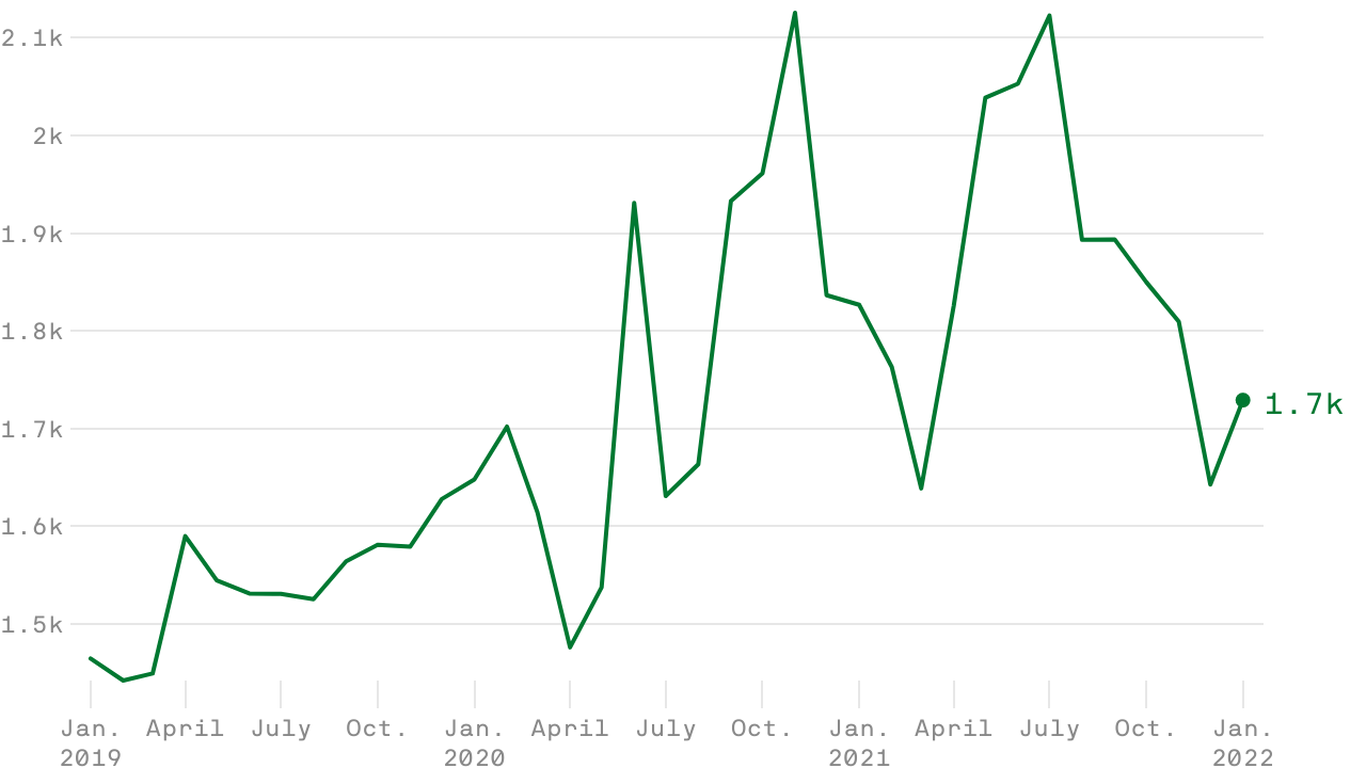
The four-day work week is nowhere close to becoming the norm, despite a flurry of corporate announcements, media coverage and intense interest from worker bees worldwide.
Why it matters: With the pandemic throwing work-family dynamics into chaos and a labor market favoring workers, there's demand for this.
Driving the news: In a bid to attract top talent, tech startup Bolt and Japan-based Panasonic recently announced they’re doing four-day weeks.
- This spring, 35 companies in the U.S. and Canada, including Kickstarter, a few nonprofits and even an RV manufacturer, will test shorter weeks with help from 4 Day Week Global, a nonprofit founded in New Zealand in 2018.
- They're piloting a similar program in the UK.
Yes, but: Each time a company does this, it gets a lot of attention — but, overall, the needle isn't moving.
- In January, there were just 1,700 job postings advertising four-day work weeks for every million listed on Indeed.com.
- "There are not a lot of clients looking to do this,” Bill Schaninger, senior partner at McKinsey, tells Axios.
The big picture: Cutting the workweek could be a solution to growing reports of burnout among professionals.
- "It’s a workers' market," says Rep. Mark Takano (D-Calif.), who has introduced a bill to reduce the standard workweek to 32 hours. "This is the exact right time to propose this idea."
How it works: The idea is to work fewer hours, for the same amount of money, without losing productivity — making everyone happier (like in Iceland!)
- Remote work makes this more possible. Whereas socializing in-office had benefits and could be fun, let's be real: Zoom yoga sessions and happy hours are lame.
- Companies pulling this off say the key is fewer meetings and more asynchronous work, meaning less email and Slack messages and more shared work schedules on Trello and Airtable.
What they're saying: The few companies that have done this talk up the benefits, in part to attract workers in a fiercely competitive environment:
- A four-day week is more humane, Kickstarter vice president John Leland said. “We think it’s better for employees. It gives them time back," Leland tells Axios.
- Galyn Bernard, co-CEO of Primary, a children’s clothing retailer that started giving employees Fridays off during the pandemic, says that the company functions better this way.
- People are reducing meeting times and getting more done, according to Jennifer Christie, chief people officer at Bolt, which gives employees Fridays off.
Of note: Other firms simply are offering more days off. Twitter is doing a "day of rest" every month.
The bottom line: Until the early 20th century, a five-day workweek seemed impossible — so never say never. Still, work has taken over white collar workers' lives seven days a week — it just might not be possible to truly dial it down to four.
- "It's a mindset shift," Christie said of the four-day schedule. She spoke to Axios on a Friday, acknowledging that sometimes work does come up.
"four" - Google News
January 26, 2022 at 05:00PM
https://ift.tt/3IIlbR3
Four-day workweeks get rave reviews, but they're not catching on - Axios
"four" - Google News
https://ift.tt/2ZSDCx7
https://ift.tt/3fdGID3

No comments:
Post a Comment